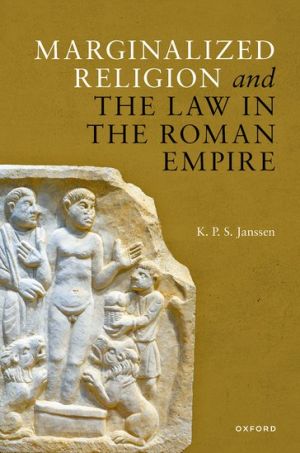We are now closed for the Christmas and New Year period, returning on Monday 5th January 2026. Orders placed during this time will be processed upon our return on 5th January.

The Roman Empire's approach to religion has traditionally been described in paradoxical terms. On the one hand, Rome has often been regarded as almost proverbially tolerant, as well as highly flexible in its dealings with the diverse range of religious cults and practices within its territories. On the other hand, the Roman religious landscape was not without its limits, and there were certain groups who found themselves, for one reason or another, on the outside. The legal interactions between these groups and the Roman authorities have largely been studied in isolation.
In Marginalized Religion and the Law in the Roman Empire, K. P. S. Janssen instead takes a comparative approach, and investigates how members of various marginalized religious groups were embedded in, and interacted with, the wider Roman legal system. The legal positions of private diviners, Jewish communities and early Christians are compared and contrasted to provide a broader perspective on the legal treatment of marginalized religion in the Roman world. Janssen argues that the known interactions between these respective groups and the Roman authorities are best understood within the wider context of Roman law and administration, and that they furthermore shared a number of important characteristics. While the treatment these groups received was certainly not in all respects identical, the procedural, socio-political, and ideological mechanisms that underpinned the relevant legal measures were nonetheless conspicuously similar.